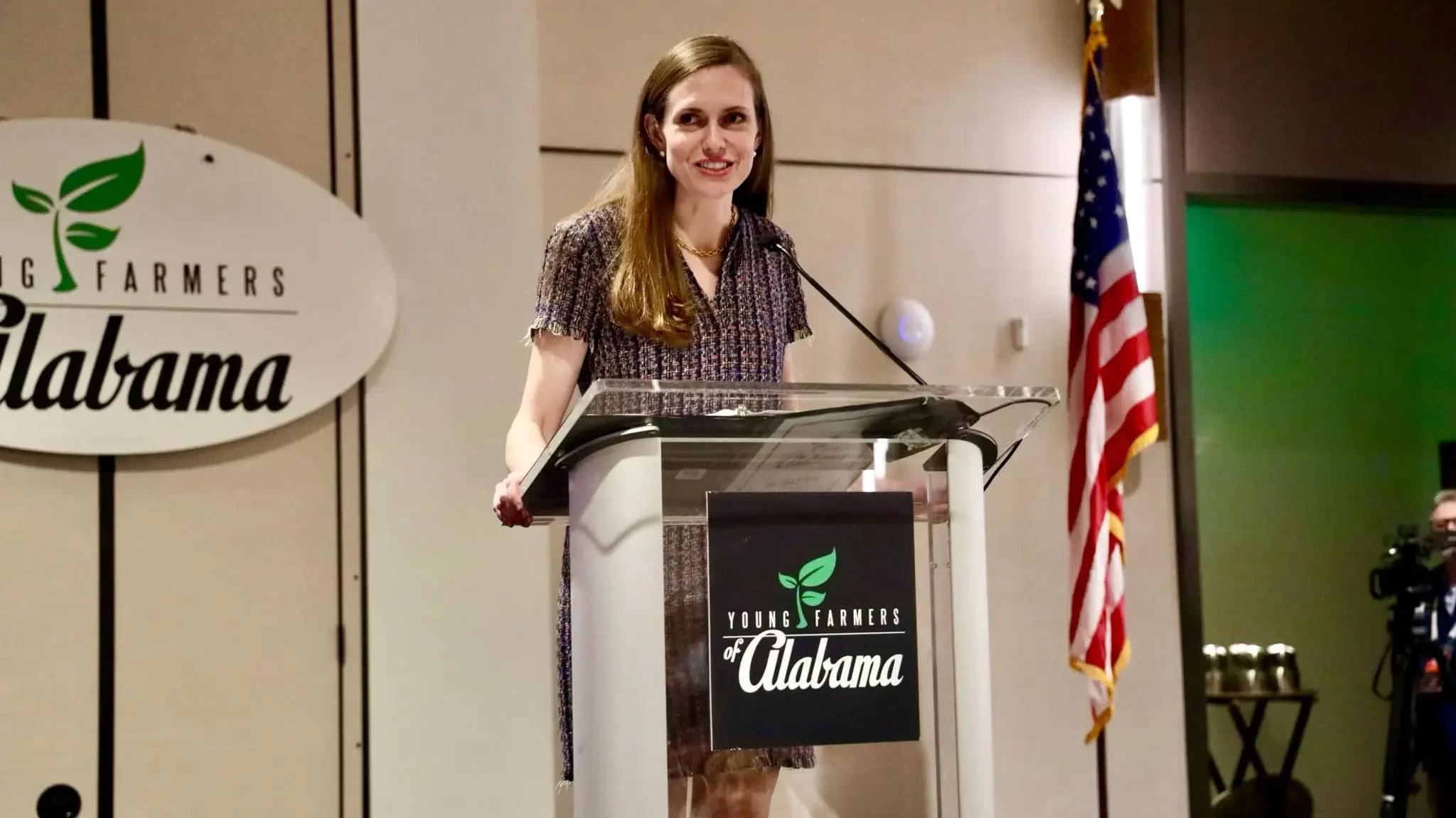|
Getting your Trinity Audio player ready...
|
New reporting by Michael Harriot at theGrio traces the ancestry of Caroleene Dobson and Shomari Figures, the respective Republican and Democratic nominees for Alabama’s newly-redrawn 2nd Congressional District.
Harriot first details Figures’ background, explaining how the former Obama organizer and DOJ attorney descends from John McCorquodale, a North Carolina slaver and plantation owner who fathered Figures’ distant relative Emily Jane McCorquodale with one of the women whom he enslaved.
Figures’ great-great-grandfather was himself enslaved before working as a sharecropper after the Civil War; two generations later, Figures’ grandfather was a janitor at the International Paper Company; then came his father, Michael Anthony Figures, who became a leading civil rights figure and politician in Alabama.
Michael Figures graduated from the segregated all-Black Hillsdale Academy before attending Stillman College, another all-Black institution. He then went on to integrate the University of Alabama Law School as one of its first Black students and graduates. In 1979, Michael Figures became one of three Black members of the Alabama State Senate and in the ’80s he served as lead attorney in the civil suit that would ultimately bankrupt the Ku Klux Klan.
Michael’s wife and Shomari’s mother, Vivian Figures, went on to win Michael’s seat in the State Senate in 1997 after his passing. In 2008, Vivian became the first African American woman to be nominated for the U.S. Senate, though she did not win the seat. Vivian went on to become the Alabama legislature’s first female party leader as the Senate Minority Leader of the Democratic party in 2013 and 2014.
Harriot notes that Figures’s family history shares many parallels with Dobson’s. “Like her opponent, Dobson is a product of her ancestors. Her family’s origin story also contains ties to slavery, the confederacy and racial terrorism. It also begins on a North Carolina plantation and ends in Alabama with a family inheritance,” he writes.
Like Figures, Dobson is the descendant of plantation owners and slaveholders. However, unlike Figures, Dobson’s lineage is not the product of a slave owner bearing children with one of his slaves. According to Harriot’s research through Camden County census records and Tara D. Field’s abstracts of Georgia Slave Deeds, “Dobson is the great-great-great-great-great-great granddaughter of John Hardee, a ‘prominent state senator and slaveholder‘ who lived in North Carolina before receiving 1,360 acres in Camden County, Ga., for his service as a soldier in the American Revolution.”
“The plantation became known as the Rural Felicity Plantation, where Hardee’s descendants bought and sold 183 human beings between 1816 and 1850,” according to Harriot. By 1840, the Hardees were in the top 0.1 percent of American slaveowners, owning 137 human beings.
Then, in 1817, John Ziba Hardee moved to the Alabama Territory. His son Joel Hardee (Dobson’s great-great-great grandfather) then moved to Monroe County, Alabama, and claimed squatters rights on 50 acres of land that had previously belonged to the native Muscogee Nation. Joel eventually expanded his acreage through the Land Act of 1820, paying $1.25 per acre for almost 400 acres in Monroe County.
After the Civil War, Joel’s uncle, William Hardee, settled in Selma and became a prominent, honorary member of the Ku Klux Klan. Following the 13th Amendment’s outlaw of slavery, Joel Hardee turned to sharecropping for cheap labor, paying Mitchell Chapman, Cyrus Boatwright and Isaac Bulloch — all former slaves — less than 34 cents per day to farm his land.
Dobson’s campaign bio refers to this land as her “fifth generation cattle farm” where “she learned the meaning of hard work and developed a firsthand understanding of the challenges faced by hardworking families and entrepreneurs.”
Harriot also notes the extensive wealth generated by Caroleene’s husband Robert Dobson’s family which was also founded in slave labor. “Robert Dobson is the great-great-grandson of Richard King, who used his 825,000-acre ranch to feed confederate soldiers and fund the fledgling white supremacist nation during the Civil War. To this day, the Dobsons continue to financially benefit from the slave labor camp,” Harriot writes.
According to quarterly reports filed with the Federal Election Committee, Dobson continues to earn thousands of dollars each year from her family’s ownership stake in King Ranch. According to Harriot, Dobson’s real estate holdings are worth at least $5.4 million.
“To be clear, wealth isn’t necessarily bad,” Harriot writes. “Still, it explains how little old conservative farm mom’s campaign can outspend a politically connected ‘Washington insider’ by a 3 to 1 margin.”
In a statement made to APR, Dobson rejected the scrutiny which she is facing over her ancestry and its relationship to her campaign. “My opponent is focused on people who lived 150 years in the past…people I never met nor heard of,” Dobson said. “Instead of focusing on the past, I’m focused on the future – a future that allows everyone, regardless of their race, income level, or education – an equal opportunity at long-lasting, high-paying, 21st Century jobs. A future that fully breaks from our state’s painful past and promises brighter and more prosperous days ahead for all Alabamians.”
Importantly, it is Dobson herself who has made her heritage an essential aspect of her campaign. Dobson’s campaign site describes her as a “passionate advocate for families, farms, and faith” who aims to “preserve the bedrock values and moral backbone that have defined our nation.” And after winning the Republican primary earlier this year, she stated: “I was born here, and it is my Alabama roots and values that I will take to Washington to represent you.”
Dobson has continuously portrayed herself as a small-town Southerner whose values align with those of “real Alabamians,” while casting Figures as a liberal elite and Washington insider. “To assume [Figures] will prioritize the interests of people of District 2 over his career path is fantasy,” Dobson told Mobile Republicans in July.
Dobson has already faced criticism over her graduation from a so-called “segregation academy,” and particularly for how that education seems to inform her own policy positions. Dobson has publicly expressed a desire to defund the U.S. Department of Education; she has also voiced her support for the CHOOSE Act, a state bill going into effect in 2026 that has been criticized for stripping funds from local public schools in favor of funding private institutions, which could inadvertently perpetuate racial divisions and disparities across the state.
In November, Alabama’s 2nd Congressional District will vote to elect either Dobson or Figures to the U.S. House of Representatives.






















































